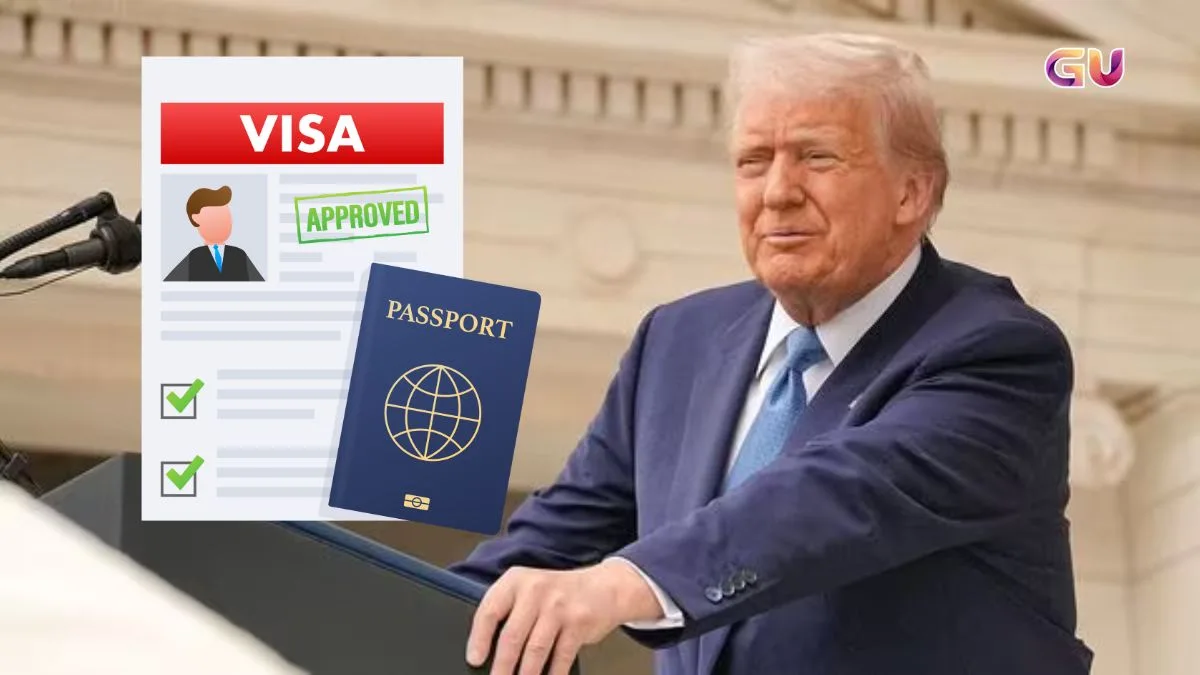Student Visa Donald Trump: The Trump administration has ordered U.S. embassies and consulates worldwide to halt new interviews for international student visa applicants.
The directive, signed by Secretary of State Marco Rubio, signals a significant shift in how foreign students are vetted before being allowed to study in the United States. The pause is part of a broader plan to implement mandatory and expanded social media screening for all F, M, and J visa applicants.
According to an official State Department cable dated Tuesday, embassies are instructed not to schedule new visa appointments for student and exchange visitors until further guidance is issued. This move is part of a national security effort to review and possibly overhaul the screening process.
The cable refers to upcoming plans to evaluate all applicants’ online behavior, including posts, likes, and comments across social platforms like Instagram, X (formerly Twitter), TikTok, and Facebook.
While prior efforts targeted returning students involved in political activism—particularly those protesting U.S. foreign policy in Gaza—this new expansion will reportedly apply to all student visa applicants regardless of prior flags.
The Department has not provided detailed criteria for what types of social media activity may lead to rejection, sparking concerns about vague standards and political overreach.
Higher education leaders and international education advocates have raised alarm over the move. Fanta Aw, CEO of NAFSA: Association of International Educators, criticized the decision, stating that it casts unfair suspicion on foreign students and diverts resources from genuine security priorities.
Aw emphasized that international students contribute significantly to the U.S. economy and society, adding nearly $44 billion in 2023–2024 and supporting over 378,000 jobs.
The visa interview freeze could compound enrollment challenges for U.S. universities, many of which already face declining interest from international applicants due to tighter immigration policies. The freeze also follows a March directive requiring consular officers to document potentially “derogatory” content, including posts expressing solidarity with Palestinians, raising further free speech and civil liberties concerns.
Rubio recently told senators that “thousands” of student visas have already been revoked, with more likely to come. The administration’s approach aligns with its broader crackdown on immigration and efforts to pressure universities—especially elite institutions Trump has criticized for “left-wing ideologies”—to address alleged antisemitism on campus.
A spokesperson for the State Department defended the move, stating that every visa approval is fundamentally a national security decision. While visa applicants have been required to disclose their social media handles since 2019, this new policy represents a more aggressive and active form of content review.
Critics warn the expansion could disproportionately target students from conflict regions or those with politically sensitive viewpoints. Education leaders have urged the administration to reconsider the policy and find a balance between national security and maintaining the United States’ status as a global hub for higher learning.
As the situation develops, the State Department is expected to issue new guidance clarifying how social media vetting will be implemented and whether it will become a permanent fixture in the student visa process. Until then, thousands of aspiring students around the world face delays and uncertainty about their academic futures in the United States.
